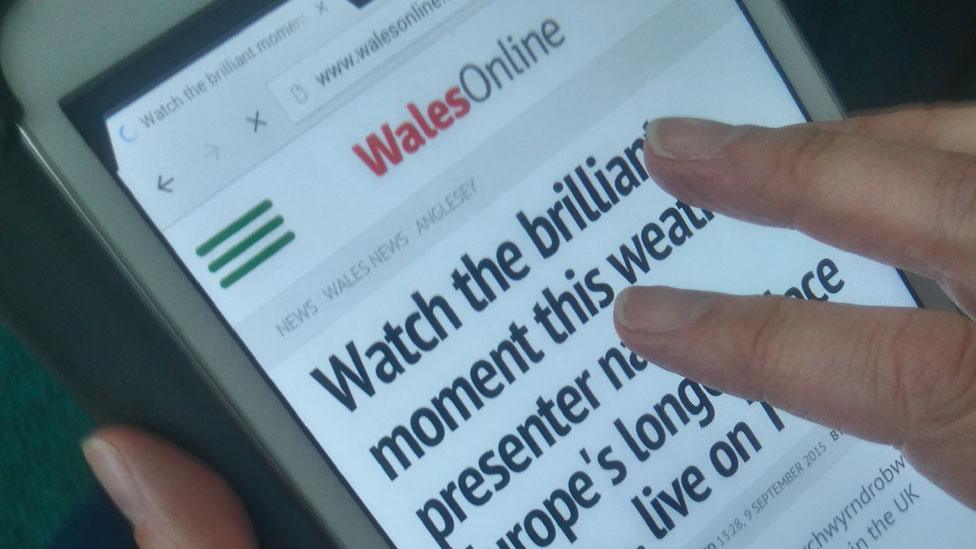Clickbait: The changing face of online journalism
- Published
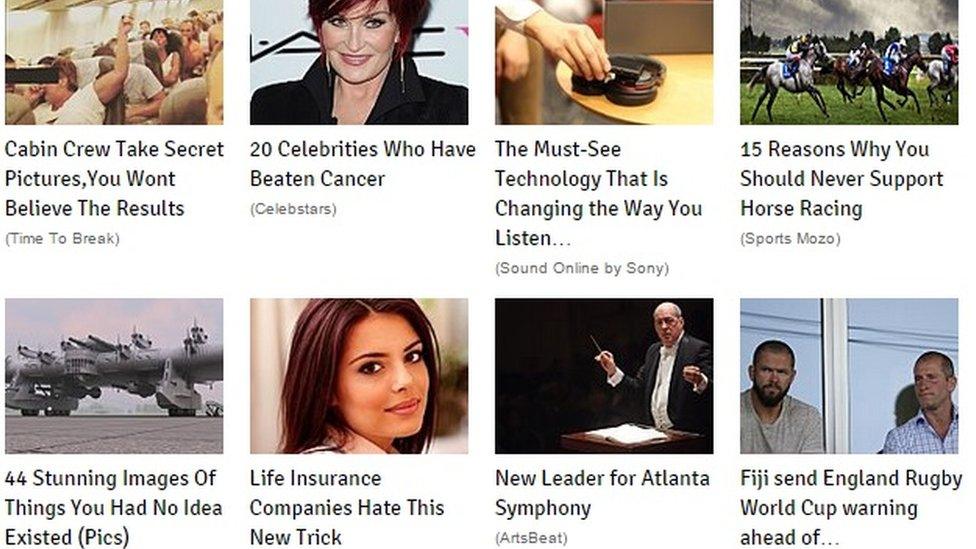
Stories like these have become commonplace at the bottom of online news articles
It is a golden rule of journalism, taught to any news reporter at the beginning of their career - your introduction should grab the reader straight away.
If you cannot hold someone's attention for a sentence, you have no hope of getting them to read the rest of your article.
The same is true for headlines; stark, witty or intriguing ones can draw the reader's eye to a story.
Headline writing has long been considered a skill but, in the digital age, a new word has become synonymous with online journalism - clickbait.
Put simply, it is a headline which tempts the reader to click on the link to the story. But the name is used pejoratively to describe headlines which are sensationalised, turn out to be adverts or are simply misleading.
Publishers increasingly use it for simple economics; the more clicks you get, the more people on your site, the more you can charge for advertising.
A report by the Columbia Journalism Review, external highlighted the case of online magazine Slant, which pays writers $100 per month, plus $5 for every 500 clicks on their stories.
Slant is far from unique in this respect and this business model is becoming increasingly common, but opponents argue it means journalists will dumb down stories in order to get more clicks in order to earn a living.
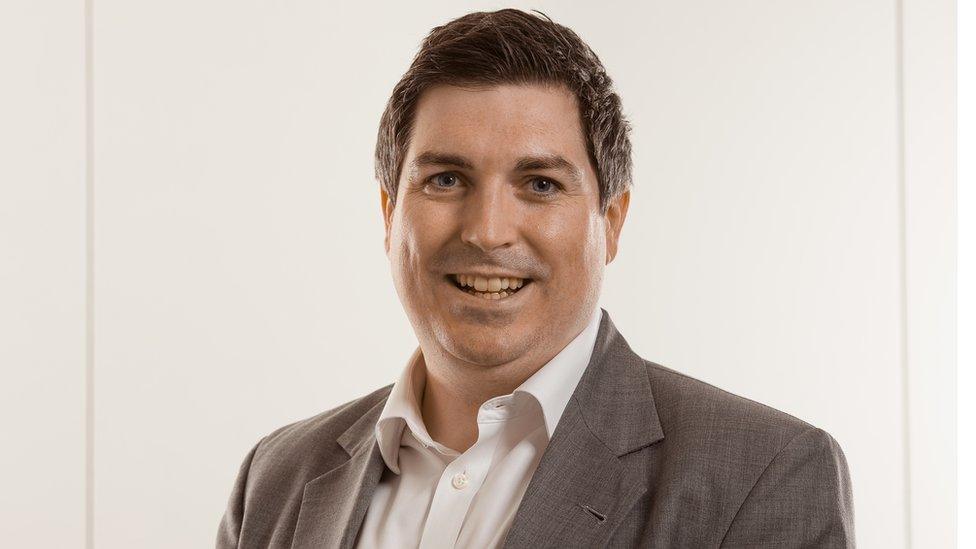
Damian Radcliffe said clickbait is often used as a negative term, but the reality is not so simple
Last week, the NUJ expressed concerns after Trinity Mirror, one of the UK's biggest newspaper publishers, announced plans to introduce individual website "click targets" for journalists.
The group's editorial director, Neil Benson, said the aim was to focus on providing content that is "relevant to our audiences".
Damian Radcliffe, honorary research fellow at Cardiff University's School of Journalism said: "It's part of the world in which we now operate - there's a lot to be said for journalists to be able to write better or snappier headlines."
There are fears it could curtail a cornerstone of journalism - holding those in office and power to account - in favour of appealing to the lowest common denominator.
But Mr Radcliffe said this may not be the case.
"I think those stories will still be covered, but they may well cover them in new and different ways; not dumbing-down but being creative in how you tell these stories through infographics, explainers and video.
"I think it's a recognition the audience consumes content in different ways."
'Dangerous path'
Peter Preston, former editor of the Guardian and a columnist for the Observer, said: "You certainly want your journalists to be thinking how they get the maximum level of interest... it seems on one hand it's pretty stupid to not make sure your journalists are doing their best to serve their readers.
"It's a means of getting journalists to concentrate on [ensuring] whatever story they are doing is presented in the best way."
But Ken Smith, chairman of the Welsh executive council of the National Union of Journalists, has concerns.
"Without a doubt, there is a dumbing down in terms of content going on websites which does not bode well," he said.
"Inevitably, if the criterion for including the story on the website is determined by the number of clicks, then we're going down a very dangerous path.
"There's going to be an emphasis on the trivial, rather than stories which require more considered reading.
"If you're setting individual targets about how many clicks they should be getting, they will be more inclined to do this instant gratification journalism rather than look into issues of concern about how the local council is performing because they take time to research."
A by-product of this style of journalism - the frustration of readers clicking on a story which promised more than it delivered - has led to new ways to offer content.
Netherlands-based Blendle allows people to read stories from a host of newspapers and magazines, and offers a pay per story set up with a money back guarantee if readers feel short-changed or dissatisfied.
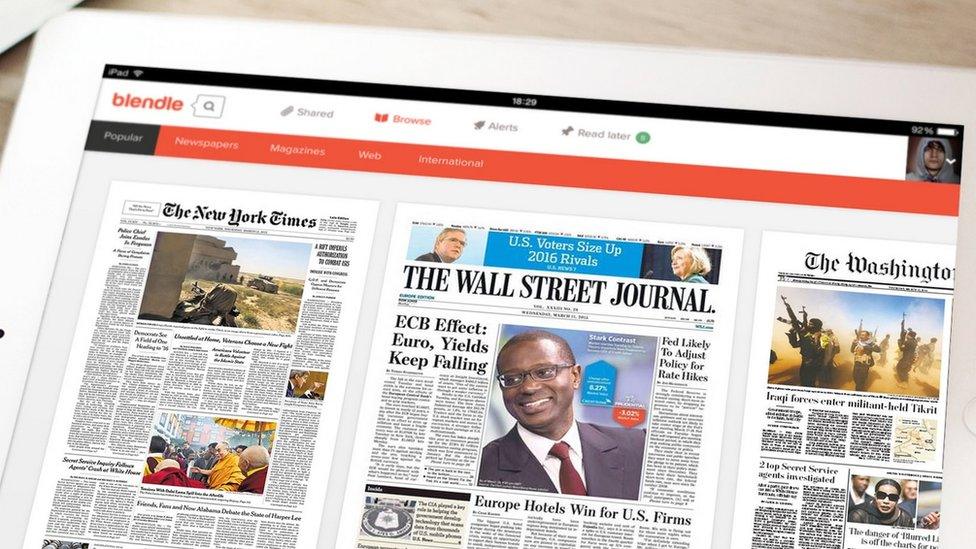
Blendle offers people the chance to access a range of publications through one website
Sensationalising news is hardly new and, in the days of print journalism, there was no guarantee the stories scrutinising the elected and the powerful were being read any more than the titillating content.
"In days of yore, you had no idea if people were reading stories about parliament in the Sunday Times or from the local council or just skipping to the sport section, so I don't think it's a new question," said Mr Radcliffe.
"We've always had sensationalist content, I think it's easy to look back with rose-tinted spectacles. You can say we're living in the golden era of journalism in the access to the breadth and quality of journalism that we have now."
Mr Preston said the changing needs of online audiences means a healthy balance needs to be struck.
"There is a potential problem where a lot of less tractable material happening in your local parliament or more complex foreign affairs gets put to one side because reporters get concerned about pay and standards begin to fall," he said.
"These websites and newspapers are beginning to realise you need a bit of both to what you're putting out as opposed to just lists and fluff - there is a bit of a swing back."
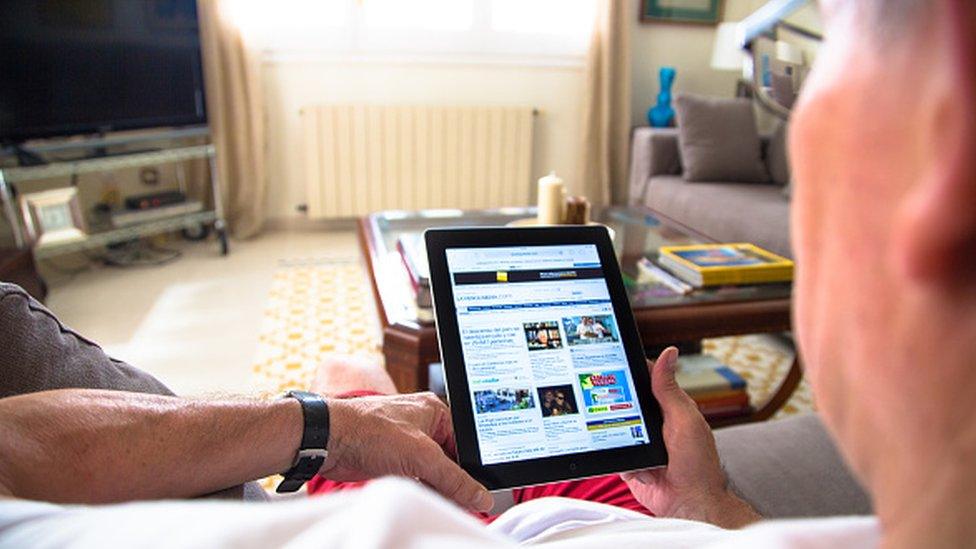
Headlines are as old as journalism itself, so are those teasing lines on social media just a progression of an age-old skill?
"Headline writing is an art, to write something that draws somebody in. Clickbait seems to be a catch-all for that skill and has very negative connotations, but the reality is more nuanced and the ability to write something enticing on Twitter to pique someone's interest is a real art," said Mr Radcliffe.
"Some people see it [pay per click] as a slightly dirty business model. I don't share that view, it's just a digital reality. If that's how you get your foot in the door and develop a good story sense and how to write a good headline, I don't see anything wrong with that."
Negative consequences
But what works for one website will not necessarily work for another, so every organisation has to decide what balance works best.
"There's no doubt there's a swell of stories and the way they attract attention. There's a danger of shouting and tarting things up, almost across the board," said Mr Preston.
"[Clickbait stories] have somewhat diminished the value of news - they sell on stars in and out of bed... and that's one way of getting the clicks.
"People are beginning to say 'we need more stories, we need actual things happening' because that brings back readers and encourages engagement."
One perennial frustration for the online reader is the "look at me" headline, which can have negative consequences.
"If you look at news websites, increasingly stories are being headlined 'You will not believe what you're going to read'. It's all very well to do that occasionally when you've got something to interest the reader, but if you overplay your hand, people will find out what you're offering will not match your headline," said Mr Smith.
"This is a dangerous route to follow and sooner or later they're going to wake up to what you're offering them with these teasing headlines is not matched by the writing."
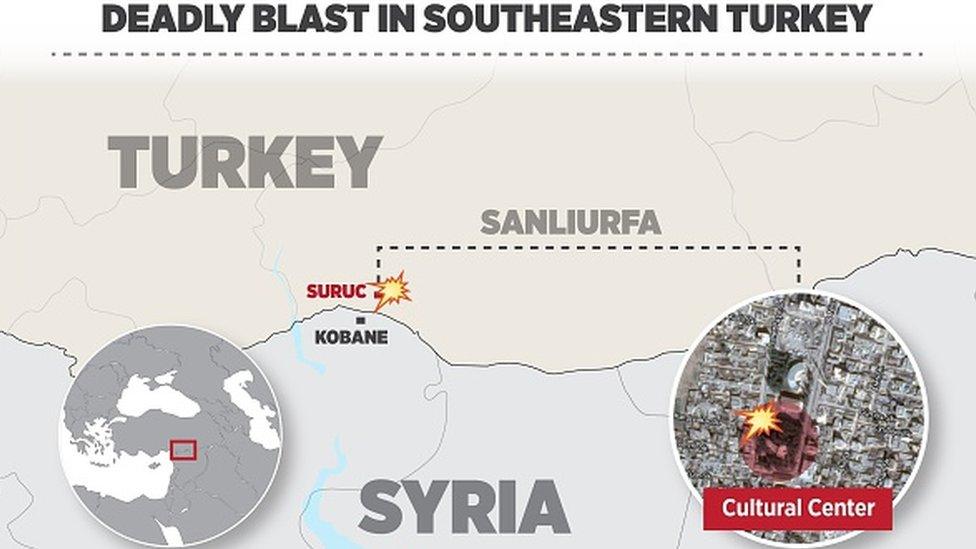
Infographics are a different way to present a story
Where does this leave publicly-funded news outlets like the BBC, which does not have the same commercial pressures as the private sector and has a different editorial policy?
Mr Smith said: "It places a bigger burden on the BBC if you've got private sector giving up on public interest journalism."
He believes the BBC's plan to have a pool of reporters to share work with local newspapers "will take resources away from the BBC and will encourage the newspaper groups that have been making cuts to cut further, because they may well say if they can get the BBC to pay for the serious public interest material, we will get rid of existing employees and rely on what the BBC does".
Mr Radcliffe added: "Is the BBC still about universality or about market failure in covering and reporting on stories that are not being covered elsewhere? It's a big question and one that will continue to be discussed until the next charter renewal."
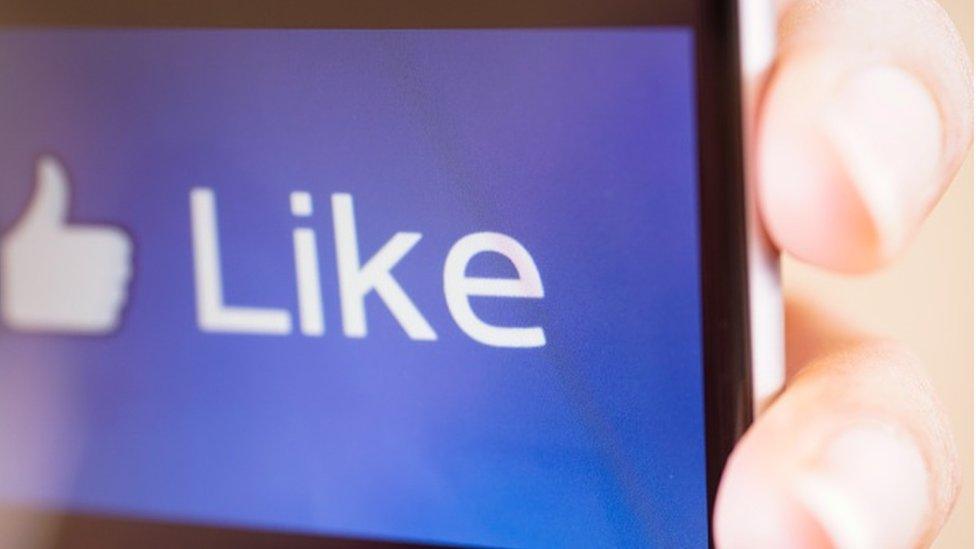
It is not just the content that journalists need to think about, but the medium.
Social media now works as a separate entity for news outlets - rather than a simple headline, picture and link to a story, organisations have to repackage and change how they offer news depending on the platform.
"What works on Twitter might not work on Facebook - you can potentially tell a story in 140 characters with a supporting image," said Mr Radcliffe.
Also, more thought is needed about which stories are posted on social media as that is not going to be the same audience as a newspaper's website.
"There's no doubt digital can do many sorts of stories absolutely brilliantly," said Mr Preston.
But Mr Smith feels style is being prioritised over substance: "The danger is we've become obsessed with the medium and forgotten about the content; good journalism is good in whatever medium it is available.
"You can come up with the most technically refined way of delivering material, but if that material is of no value there's no point to it."
'Massively daunting'
Clickbait in the many forms it takes - from the intriguing to the misleading - seems to be here to stay, so journalists and news organisations have a decision to make on what they want to offer people and where their priorities lie.
"It's a question of balance and if things are going the way they have been, newspapers will cease to have the character that they have had for centuries and they will simply become a vehicle of the light entertainment industry, which is quite tawdry, said Mr Smith.
But Mr Radcliffe sees causes for optimism: "I think it is just a different way of working, a reflection of the fact audiences consume content in different ways.
"The future is incredibly exciting and massively daunting, there are opportunities to do things in new and interesting and exciting ways."
But Mr Preston has words of caution for newspaper groups hunting for clicks.
"Trinity Mirror has reasonable reasons for doing this [pay per click]. Regional and local papers are fighting to make an impact online, having started down that road a little bit too late.
"But if you open a Trinity Mirror paper in two or three years time after this has started and can't find anything but fluff and sensationalism then that's newspapers - online or offline - beginning to cut their own throats."
- Published30 September 2014
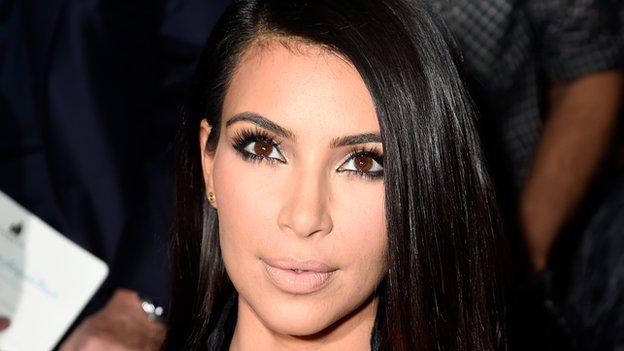
- Published10 September 2015
